
 Flash News
Flash News
Fight between teenagers, 15-year-old ends up in hospital
Kosovo Assembly constitution, proposal for secret ballot fails
Serious accident on the Peqin-Elbasan axis, two people seriously injured
'Fight, fight, fight'/ PD-ASHM towards historic victory, LaCivita mobilizes the campaign at the meeting with the candidates
Car hits pedestrian on Korça - Pogradec road, 43-year-old woman dies
Eurostat: Albanians are paid less, but have the longest working hours in Europe
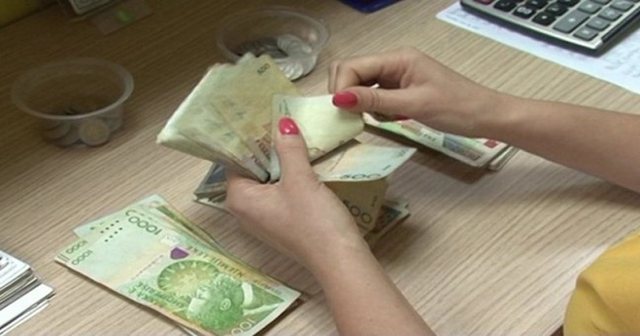
In the European Union, in 2023, people of working age aged 20-64 worked an average of 36.1 hours per week, according to Eurostat. This number refers to the hours people actually worked in their main job in the reference week.
Average weekly working hours vary across EU countries. Those with the longest working weeks were Greece (39.8 hours), Romania (39.5), Poland (39.3) and Bulgaria (39.0). In contrast, the Netherlands had the shortest working week (32.2 hours), followed by Austria (33.6) and Germany (34.0).
Albanians work the longest hours in Europe
INSTAT data shows that Albanians work longer hours than anyone else in Europe. In 2023, salaried employees worked an average of 43.7 hours per week, or 7.6 hours more than the European average. The longest hours are in manufacturing (46.5), agriculture (44.8) and construction (45.6) and the lowest in administration (40).
Albania is followed by Turkey with 43.1 hours. The Balkans generally work longer hours. In Montenegro, employees work 42.8 hours a week, in Serbia 41.3, in Bosnia 41.2 and in North Macedonia almost 40 hours. Although Albanians work longer hours, they are paid less than everyone else, with both the minimum and average wages being the lowest in the region (no data available for Kosovo).
Employed persons by average current working hours
In the EU, in 2023, 37.1% of employees worked an average of between 40 and 44.5 hours per week, while only 7.1% recorded fewer than 20 hours of actual work per week in their main job. The 40-44.5 range of actual working hours represents the majority in most countries – with the exception of Ireland, Finland, Belgium, France and Denmark, where the majority of employees were in the 35-39.5 hours average working week range.
The same hour range (40 to 44.5) also shows the greatest differences between countries. The highest percentages were recorded in Bulgaria (82.2%), Romania (80.2%) and Latvia (77.7%). The lowest percentages were found in Belgium (16.1%), France (13.3%) and Denmark (10.6%)./ Monitor
Latest news


Forza Italia MP: Only Sali Berisha as Prime Minister can lead Albania to Europe
2025-05-01 21:29:47

For those who were scared by Tomorr Alizoti
2025-05-01 21:05:21
Berisha challenges Rama: You promised free healthcare, come here and keep it!
2025-05-01 20:56:58



The six best foods against stomach bloating
2025-05-01 20:04:09


Zelensky: We want peace, Russia responds with attacks
2025-05-01 19:22:07

Berisha: The contract in the US is not just for the DP, but for every Albanian!
2025-05-01 19:08:14
Fight between teenagers, 15-year-old ends up in hospital
2025-05-01 18:44:17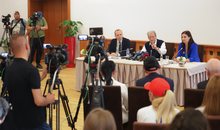






Demi Moore named the most beautiful woman in the world for 2025
2025-05-01 17:34:10
Waltz to step down as Trump's national security adviser
2025-05-01 17:24:25

What has Albania exported the most?
2025-05-01 16:49:18
Accident at 9-story building in Tirana, two injured
2025-05-01 16:47:16
How is lifestyle affecting health? Expert: Addictions are causing malnutrition
2025-05-01 16:32:09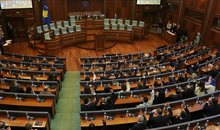
Kosovo Assembly constitution, proposal for secret ballot fails
2025-05-01 16:22:35

Britain in talks with France and Saudi Arabia on recognizing Palestinian state
2025-05-01 15:57:30

Russian drones strike major cities in Ukraine
2025-05-01 15:39:45
Farmers in difficulty, Egyptian potatoes outstrip Steblevë's
2025-05-01 15:31:36
Serious accident on the Peqin-Elbasan axis, two people seriously injured
2025-05-01 15:15:25
Inaugurated a few months ago, Zhupa: Handball stadium, dangerous for children
2025-05-01 15:10:19
Eurostat: Albanians are paid less, but have the longest working hours in Europe
2025-05-01 14:57:32
The most effective vitamins for strengthening the immune system
2025-05-01 14:53:06

May 1/ Workers in Kosovo protest for their rights, demand wage increases
2025-05-01 14:33:55

Roven Zeka met in the cell, SPAK investigates 4 police officers, phones seized
2025-05-01 14:17:09




Xhaferri: Pro-Rama polls are manipulated by incinerator payments
2025-05-01 13:23:16
51-year-old woman disappears in Kukës, search begins
2025-05-01 13:02:20

Fallen in England, 32-year-old woman dies after falling from parachute
2025-05-01 12:44:54





Staged explosion in Elbasan, head of family wanted asylum in the EU
2025-05-01 11:17:10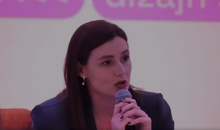
Muzhaqi: ChatGPT prepared a very beautiful speech for me
2025-05-01 11:11:29
Berat Prosecution seeks 6 years in prison for pedophile who molested a minor
2025-05-01 10:53:00

TNT explosion in Elbasan, police react: Cameras have filmed the perpetrator
2025-05-01 10:28:31
7x7 doesn't make 6 million for us, but 33 thousand euros!
2025-05-01 10:23:13
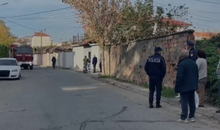
TNT explosion in an apartment in Elbasan
2025-05-01 10:03:01
Accident on the "Memaliaj-Krahës" axis, 71-year-old man loses his life
2025-05-01 09:44:45


Vehicle bombed in Tirana, explosives placed in front tire
2025-05-01 09:10:30

Car hits pedestrian on Korça - Pogradec road, 43-year-old woman dies
2025-05-01 08:39:39
Sunshine and temperatures up to 30 degrees Celsius, weather forecast
2025-05-01 08:21:48
Today is Workers' Day, what does May 1st represent?
2025-05-01 08:05:44
Posta e mëngjesit/ Me 2 rreshta: Çfarë pati rëndësi dje në Shqipëri
2025-05-01 07:55:45
Journalist: Rama used the money to lobby for himself, not for Albania
2025-04-30 22:54:10
Kurti's invitation to constitute the Assembly, PDK responds, LDK refuses
2025-04-30 22:36:18











Fiscal peace or electoral coup?! Businesses owe 1.6 billion euros to the state
2025-04-30 18:59:05


Finland passes law banning cell phones in schools
2025-04-30 18:00:25

Italian court overturns Hysaj's conviction, Albanian defender fined 40,000 euros
2025-04-30 17:32:13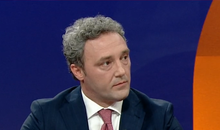


Minerals deal with US could be signed within next 24 hours, Ukraine confirms
2025-04-30 16:53:19

Stress at the office can be more dangerous than smoking!
2025-04-30 16:18:54
BKH leader Aida Hajnaj seeks a second 5-year mandate
2025-04-30 16:18:43
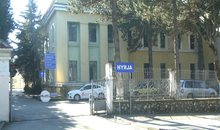

By 2023, over 350,000 people had left Kosovo.
2025-04-30 15:23:56
